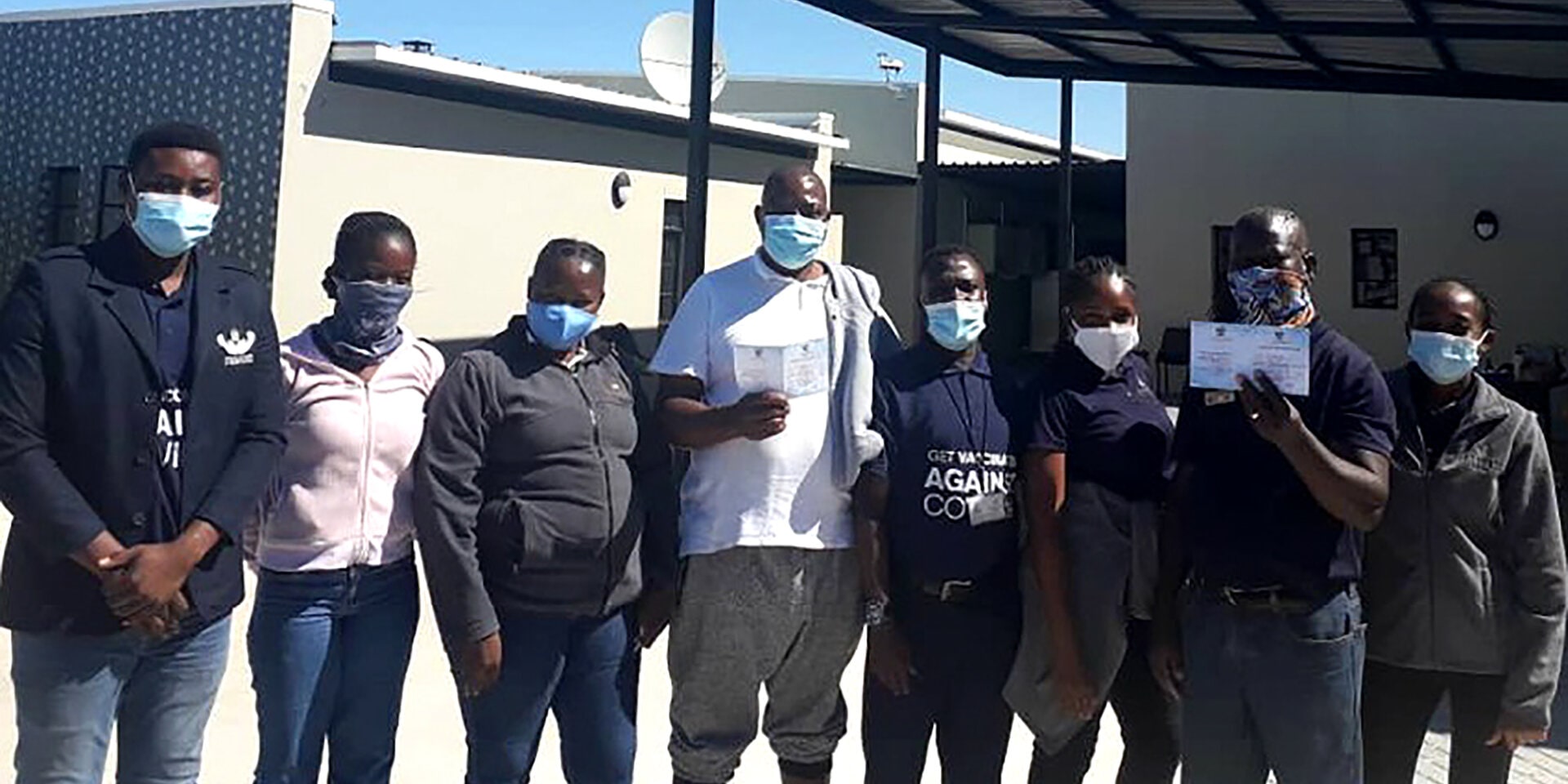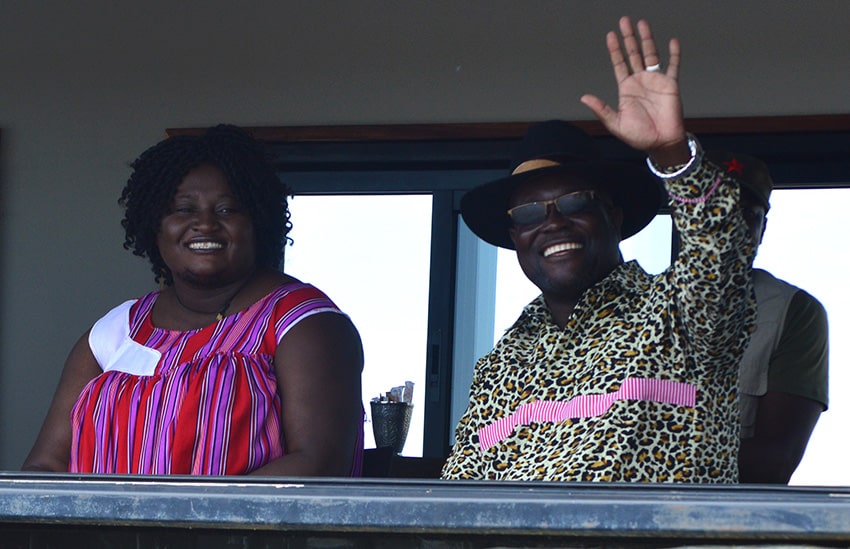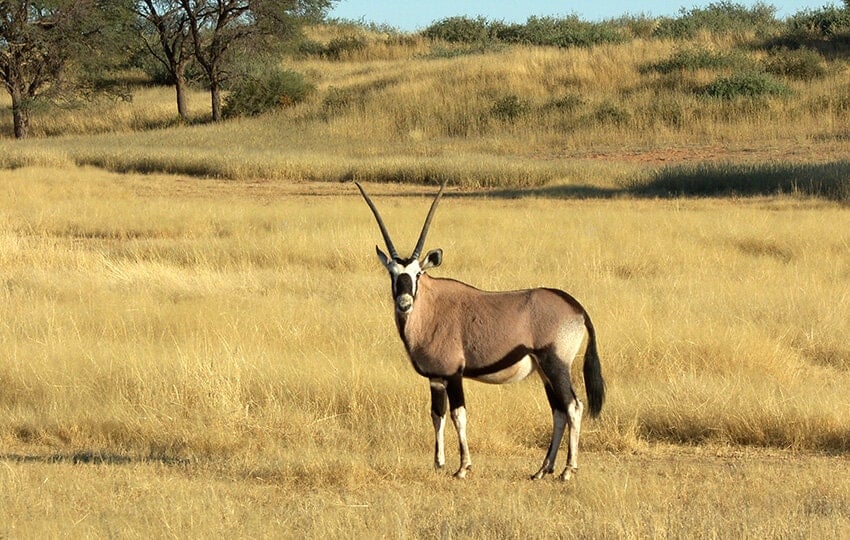Gondwana Collection Namibia is one of biggest tourism companies in the country and was founded on sustainable principles. Since its inception in 1996, Gondwana financed nature conservation with the proceeds from its eco-friendly hospitality business, which in turn creates jobs and career opportunities for the local communities.
Right from the start, the company had a prudent, stable management team that promoted the vision of a unified Namibia that is both socially and economically stable. In January 2017, after 21 years of business, one of the founders and the first MD of Gondwana Collection handed the reigns to his successor Gys Joubert. He is 1000 days in office today and embraced Gondwana’s sustainability principle wholeheartedly, expanding the company’s business interests further, and with it the employment base and social corporate responsibility. Gondwana’s CEO Gys Joubert shared his vision of sustainability with Inke Stoldt.
In view of climate change and increasing natural catastrophes, sustainability is suddenly on everyone's lips. What does it mean in the Gondwana context?
In the Wall Street Journal of 20 August 2019 this year under the heading “Top CEOs See a Duty Beyond Shareholder” I discovered an article stating the following:
The leaders of some of America’s biggest companies are chipping away at the long-held notion that corporate decision-making should revolve around what is best for shareholders. The Business Roundtable on Monday changed its statement of “the purpose of a corporation.” No longer should decisions be based solely on whether they will yield higher profits for shareholders, the group said. Rather, corporate leaders should take into account “all stakeholders”- that is, employees, customers and society at large.
This came as a big surprise to me. Only now? Not to be arrogant, but how come a small company in the south-western part of Africa has had this approach for more than 23 years? Profit, planet and people are the foundation on which Gondwana has been built since 1996. That set the tone for this company, this family and our culture. If you look at the Gondwana story, it started small and there were many tough times along the way. Many competitors were bigger and more established. Why then have most of the other lodge groups disappeared but Gondwana is still here? I am convinced it is because of these values - this company has been built on sustainability.
At Gondwana we are a family of dreamers and idealists, but believe me, we know that sustainability starts with profitability. If you are not profitable, you are not sustainable. It is not only about profit, it is about sustainable business models, financial discipline and financial detail.
When you took up the position as CEO of Gondwana Collection Namibia, you said your mandate from the board was to build the company’s future on the same values that it was founded upon. The company expanded in the past two years, but also increased its social responsibility initiatives. How does Gondwana manage to create true value not only for the company but for Namibia as a whole? How do you see the role of Gondwana in the bigger Namibian context?
What is more worthy, more wealthy than a nation which, with the help of everyone that is a part of it, truly cares for its most vulnerable? Instead of everyone for himself, help should go out to all those who truly need it the most. This is not something that can be forced or enforced, but it can be educated to others.
It is about the true understanding that not everything can be measured in money. What is the value of our peace? What is the value of our dramatic landscapes, of our free-roaming wildlife? What is the value of our nationhood? These are not line items that you will find in our GDP numbers, yet, I will argue they are some of our most important assets – our true wealth as a nation.
Therefore, morality has to be the foundation of every decision, before numbers. I am so unmeasurably grateful to be part of Gondwana where at every fork in the road, we ask ourselves, first and foremost, “what is the right thing to do?” That might sound noble and easy, but believe me, sometimes it is unbelievably hard. And sometimes we get it wrong.
Which values are most important to you and your management team in the decision-making process?
We usually get pulled in so many different directions with the diverse interests of so many individual stakeholders. The environmental forces usually feel we are not doing enough; we are constantly focused on our bottom-earning employees, so labour wants more; the communities where we operate might feel they should get more; and our investors are worried about their return on investment. What about all the social projects we are involved in with the Gondwana Care Trust - they need so much more?
There are many stakeholders and "the right thing to do”, the sustainable right answer, is a delicate golden thread somewhere in the middle of this bowl of spaghetti which we call life. I had to learn that to truly choose sustainability almost necessarily means to accept that someone will be unhappy with me and my decisions at all times. For a people-pleaser like me who always tries to keep the peace, this has been a hard lesson and a tough pill to swallow.
We invest millions in assets like staff accommodation and sewage plants based on our values. It is something we are extremely proud of, but every now and then, with the benefit of retrospect, we see that we could have done better, that golden thread was maybe a little more to the left.
I understand why the world is in the state that it is, a state which has to a large extend been created by profit at all costs, no matter the impact. That single-minded focus on profit is easy, sustainability is hard.
You also talk about the sustainability of strategy and thought – what do you mean with that?
I ask myself why great companies fade and disappear. Why is there such a small number of companies in this world older than 100 years? We have set ourselves a strategy of a 1000 years, so we must ask these questions.
The main reason is because people and companies think they must preserve the past and then they simply do not see the future. Gondwana, in some circles, has been unpopular at times because people say we are becoming too big, we are disrupting the traditional tourism model.
We strongly feel that our role is not to preserve the past - it is to face, embrace and hopefully co-design the future. The world is changing, whether we like it or not, and we need to make sure we keep the future in our sight. Heck, sometimes I feel the speed of change is ever-increasing, so we do not only need to see the future, but to start seeing the future’s future.
For this to work, there can be no egos. You need agility and the maturity to see when you’ve made a mistake and adapt accordingly. That is sustainability of strategy.
But sustainability is also a strong marketing tool, especially in the tourism sector. Nearly 40% of the land in Namibia is under some form of conservation protection, thus contributing to tourism. On the other hand, an estimated 40% of Namibia’s population make a living through agriculture and herding. What are your thoughts about a sustainable form of land use in Namibia?
One of the things that bind all the different cultures in Namibia, is agriculture. From the far north to the far south, across our many cultures we all have agriculture in our blood. If you look at the Gondwana model and as I have criss-crossed our beautiful country over the last 1000 days, seeing the hardship and suffering in some places, I ask myself if this is not maybe a dangerous thing - this legacy of agriculture we all have. I come from a farm myself and I love farming, but with the realities of global warming, is it not time to reconsider our land-use model in large parts this country?
I often drive west over the escarpment into the desert. In central Namibia you mostly find well-established and maintained farms with good housing for farm workers. The further you go west the more and more dilapidated the infrastructure becomes, and the hardship is clear for all to see. Then once you get into the desert you see beautiful lodges with a big number of employees. Once in the desert, with almost no rainfall, the prosperity is clearly much higher. Why is that? In the desert the land-use model changed from agriculture to tourism.
So what kind of land use would you suggest?
The Gondwana Canyon Park is a very good example of a place where farmers and their families and workers once eked out a meagre existence through farming, which is not sustainable in that area. A socio-economic study conducted by the Gondwana Collection at its Fish River Canyon enterprise comprising of the park and three lodges revealed that production per hectare was 34 times greater with tourism as a land-use form compared to commercial or communal farming. Today the Gondwana Canyon Park is an open area with no fences, and it provides high-quality and sustainable employment to more than 100 people. Nature, which was fought against with all means in the past because it competed with farming, has rebounded and it is amazing to see how robust nature is in such an open area with no fences.
We need less fences in this country, not more - in every sense of the word.
Thank you for the interview.
Gys Joubert, CEO of Gondwana Collection Namibia since January 2017, holds two master’s degrees in law and brought his professional expertise as a banking professional and attorney into the company, as well as ten years’ experience in the banking world.
Gys Joubert (l.) thanks the author of the book “Chariots of Fire” on behalf of the Gondwana Care Trust. Proceeds from this book are donated to the Trust in support of nature conservation.





SUBMIT YOUR COMMENT